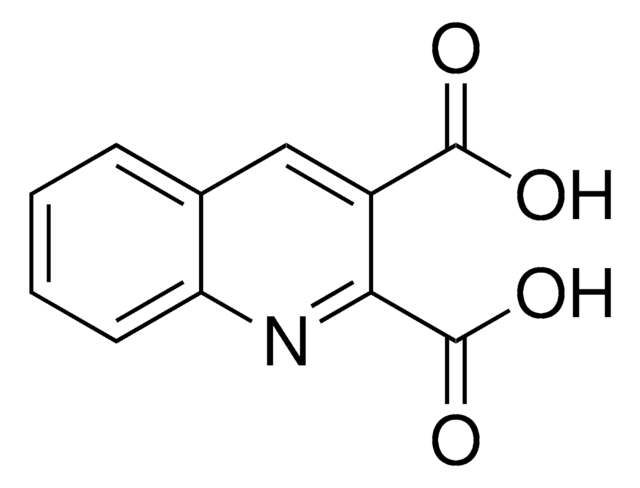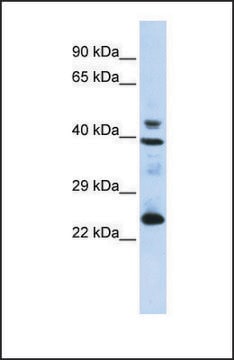16898
Hypaconitine
analytical standard
Synonym(s):
16,16-trimethoxy-4-(methoxymethyl)-20-methyl-,8-acetate benzoate,(1-α,6-α,14-α,15-α,16-β)-aconitane-8,13,14,15-tetraol
About This Item
Recommended Products
grade
analytical standard
Assay
≥97.5% (HPLC)
optical activity
[α]/D 22.5±2.5°, c = 0.1 in chloroform
shelf life
limited shelf life, expiry date on the label
format
neat
storage temp.
2-8°C
SMILES string
O=C(C1=CC=CC=C1)O[C@H]2[C@@]3(O)[C@@H](OC)[C@H](O)[C@]4(OC(C)=O)C5[C@H](OC)C6C([C@@H](OC)CC[C@]6(CN7C)COC)(C75)[C@H](C3)C42
InChI
1S/C33H45NO10/c1-17(35)44-33-21-19(14-31(38,28(42-6)26(33)36)27(21)43-29(37)18-10-8-7-9-11-18)32-20(40-4)12-13-30(16-39-3)15-34(2)25(32)22(33)23(41-5)24(30)32/h7-11,19-28,36,38H,12-16H2,1-6H3/t19-,20+,21?,22?,23+,24?,25?,26+,27-,28+,30+,31-,32?,33-/m1/s1
InChI key
FIDOCHXHMJHKRW-XCIBRDTCSA-N
Looking for similar products? Visit Product Comparison Guide
General description
Application
Signal Word
Danger
Hazard Statements
Precautionary Statements
Hazard Classifications
Acute Tox. 2 Inhalation - Acute Tox. 2 Oral
Storage Class Code
6.1A - Combustible acute toxic Cat. 1 and 2 / very toxic hazardous materials
WGK
WGK 2
Flash Point(F)
Not applicable
Flash Point(C)
Not applicable
Choose from one of the most recent versions:
Already Own This Product?
Find documentation for the products that you have recently purchased in the Document Library.
Our team of scientists has experience in all areas of research including Life Science, Material Science, Chemical Synthesis, Chromatography, Analytical and many others.
Contact Technical Service







